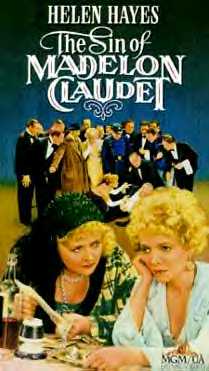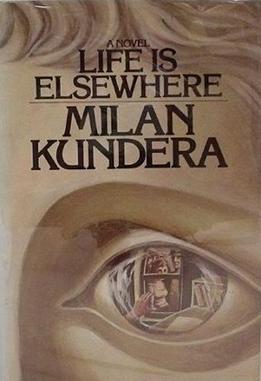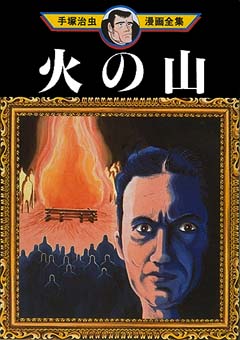
In Hinduism, Ahalya also spelt as Ahilya, is the wife of the sage Gautama Maharishi. Many Hindu scriptures describe her legend of seduction by the king of the gods Indra, her husband's curse for her infidelity, and her liberation from the curse by the god Rama.

The Sin of Madelon Claudet is a 1931 American pre-Code drama film directed by Edgar Selwyn and starring Helen Hayes. The screenplay by Charles MacArthur and Ben Hecht was adapted from the play The Lullaby by Edward Knoblock. It tells the story of a wrongly imprisoned woman who turns to theft and prostitution in order to support her son.

Sarah is a biblical matriarch, prophet, and major figure in Abrahamic religions. While different Abrahamic faiths portray her differently, Judaism, Christianity, and Islam all depict her character similarly, as that of a pious woman, renowned for her hospitality and beauty, the wife and half-sister of Abraham, and the mother of Isaac. Sarah has her feast day on 1 September in the Catholic Church, 19 August in the Coptic Orthodox Church, 20 January in the LCMS, and 12 and 20 December in the Eastern Orthodox Church.

The Metamorphoses of Apuleius, which Augustine of Hippo referred to as The Golden Ass, is the only ancient Roman novel in Latin to survive in its entirety.

The Five People You Meet In Heaven is a 2003 novel by Mitch Albom. It follows the life and death of a ride mechanic named Eddie, who is killed in an amusement park accident and sent to heaven, where he encounters five people who had a significant impact on him while he was alive. It was published by Hyperion and remained on the New York Times Best Seller list for 95 weeks.

The Stone Angel is a novel by Canadian writer Margaret Laurence. First published in 1964 by McClelland and Stewart, it is perhaps the best-known of Laurence's series of five novels set in the fictitious town of Manawaka, Manitoba. In parallel narratives set in the past and the present-day, The Stone Angel tells the story of Hagar Currie Shipley. In the present, 90-year-old Hagar struggles against being put in a nursing home, which she sees as a symbol of death. This narrative alternates with Hagar looking back at her life.

England, My England is a collection of short stories by D. H. Lawrence. Individual items were originally written between 1913 and 1921, many of them against the background of World War I. Most of these versions were placed in magazines or periodicals. Ten were later selected and extensively revised by Lawrence for the England, My England volume. This was published on 24 October 1922 by Thomas Seltzer in the United States. The first United Kingdom edition was published by Martin Secker in 1924.

The Pirate is one of the Waverley novels by Sir Walter Scott, based roughly on the life of John Gow who features as Captain Cleveland. The setting is the southern tip of the main island of Shetland, towards the end of the 17th century, with 1689 as the likely date of the main incidents.
"The Mistake" is the eighth episode of the second season of House, which premiered on Fox on November 29, 2005. The episode is told in flashbacks when the hospital and Chase's career is on the line.

Chronicles of the Canongate is a collection of stories by Sir Walter Scott, published in 1827 and 1828 in the Waverley novels series. They are named after the Canongate, in Edinburgh.

Life Is Elsewhere is a Czech-language novel by Milan Kundera finished in 1969. It was first published in French in 1973. Set in Czechoslovakia before, during, and after the Second World War, it tells the story of a young poet Jaromil and his mother who cling to each other as Jaromil tries to find artistic fame and advance the revolution at the expense of his most intimate relationships.

The Thief Akikazu Inoue is a manga by Osamu Tezuka, and also the name of one of his books in Kodansha's line of "Osamu Tezuka Manga Complete Works" books containing a collection of Tezuka's short stories. The stories included in this book are "The Record of Peter Kürten", "Sensual Nights", "Lord Iechika Mogami", "Lay of the Rhine", and "The Thief Akikazu Inoue".

Martha Bernays was the wife of Austrian psychoanalyst Sigmund Freud.
"Stone Cold Dead in the Market (He Had It Coming)" is a 1939 song with lyrics and music by Wilmoth Houdini, a Trinidad and Tobago musician who had moved to the United States. Houdini's first version bore the title "He Had It Coming." It was recorded in 1946 by Ella Fitzgerald and Louis Jordan and His Tympany Five on Decca and later included in the Ella Fitzgerald album Ella and Her Fellas.

The Grave of the Female Stranger is a famous historical oddity, local landmark and visitor's attraction in St. Paul's Cemetery of St Paul's Episcopal Church in Alexandria, Virginia.
Ishmael is regarded by Muslims as an Islamic prophet. Born to Abraham and Hagar, he is the namesake of the Ishmaelites, who were descended from him. In Islam, he is associated with Mecca and the construction of the Kaaba within today's Masjid al-Haram, which is the holiest Islamic site. Muslims also consider him to be a direct ancestor to Muhammad. His paternal half-brother was Isaac, the forefather of the Israelites.

"The Dark Swan" is the first episode of the fifth season of the American fantasy drama series Once Upon a Time, which aired on September 27, 2015.

About Endlessness is a 2019 Swedish drama film directed by Roy Andersson. It was selected to compete for the Golden Lion at the 76th Venice International Film Festival. At the Venice Film Festival, the film won the Silver Lion for Best Direction.

Mariya-Cecilia Abramovna Mendelson-Prokofieva, typically referred to as Mira Mendelson, was a Russian poet, writer, and translator who was the second wife of the composer Sergei Prokofiev. She was the co-librettist of her husband's operas Betrothal in a Monastery, The Story of a Real Man, and War and Peace, as well as the ballet The Tale of the Stone Flower.

Ice Cream is the second collection of short stories written by English author Helen Dunmore and published in 2000 by Viking Press and in the United States by Grove Press in 2003.

















